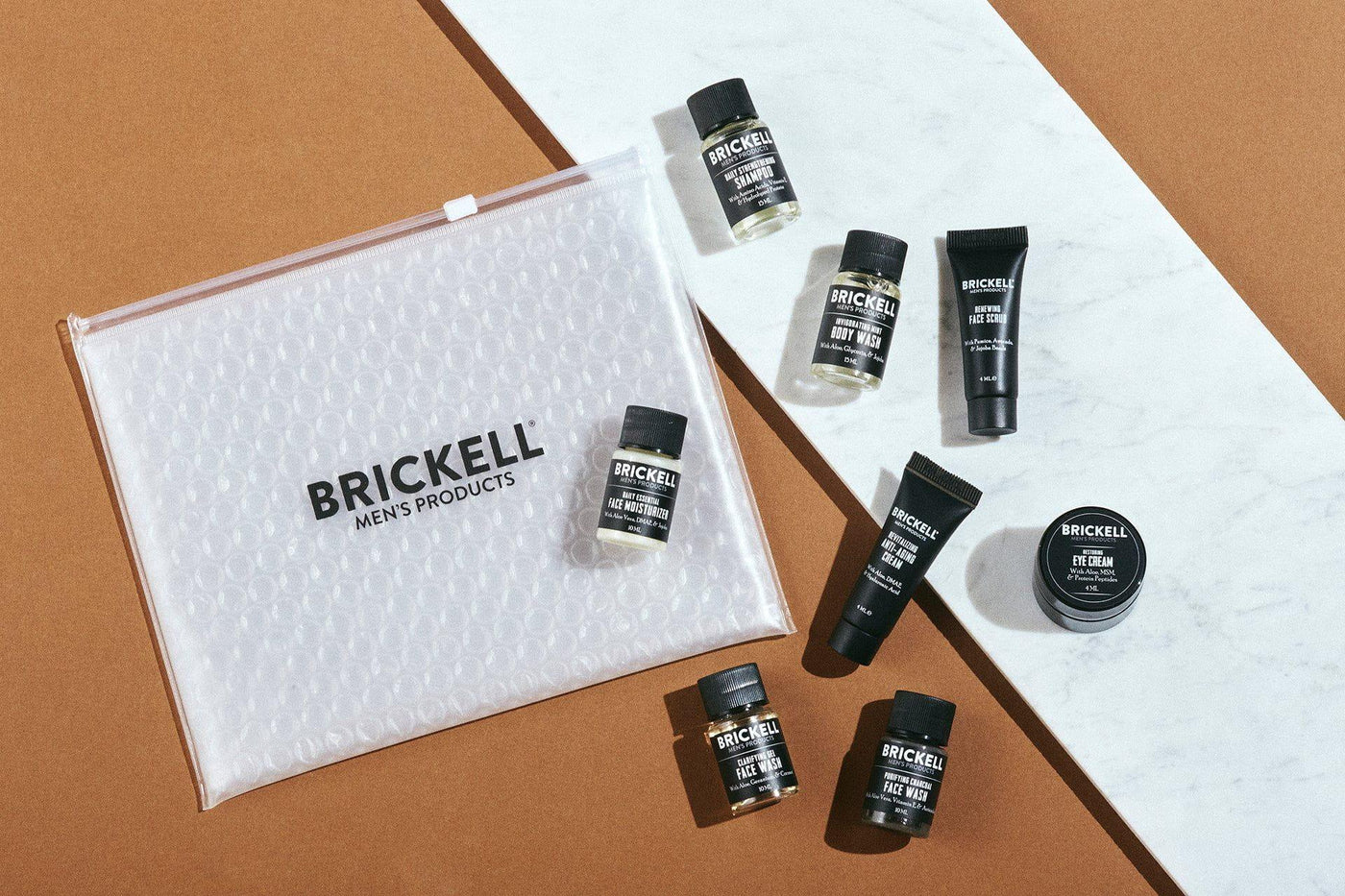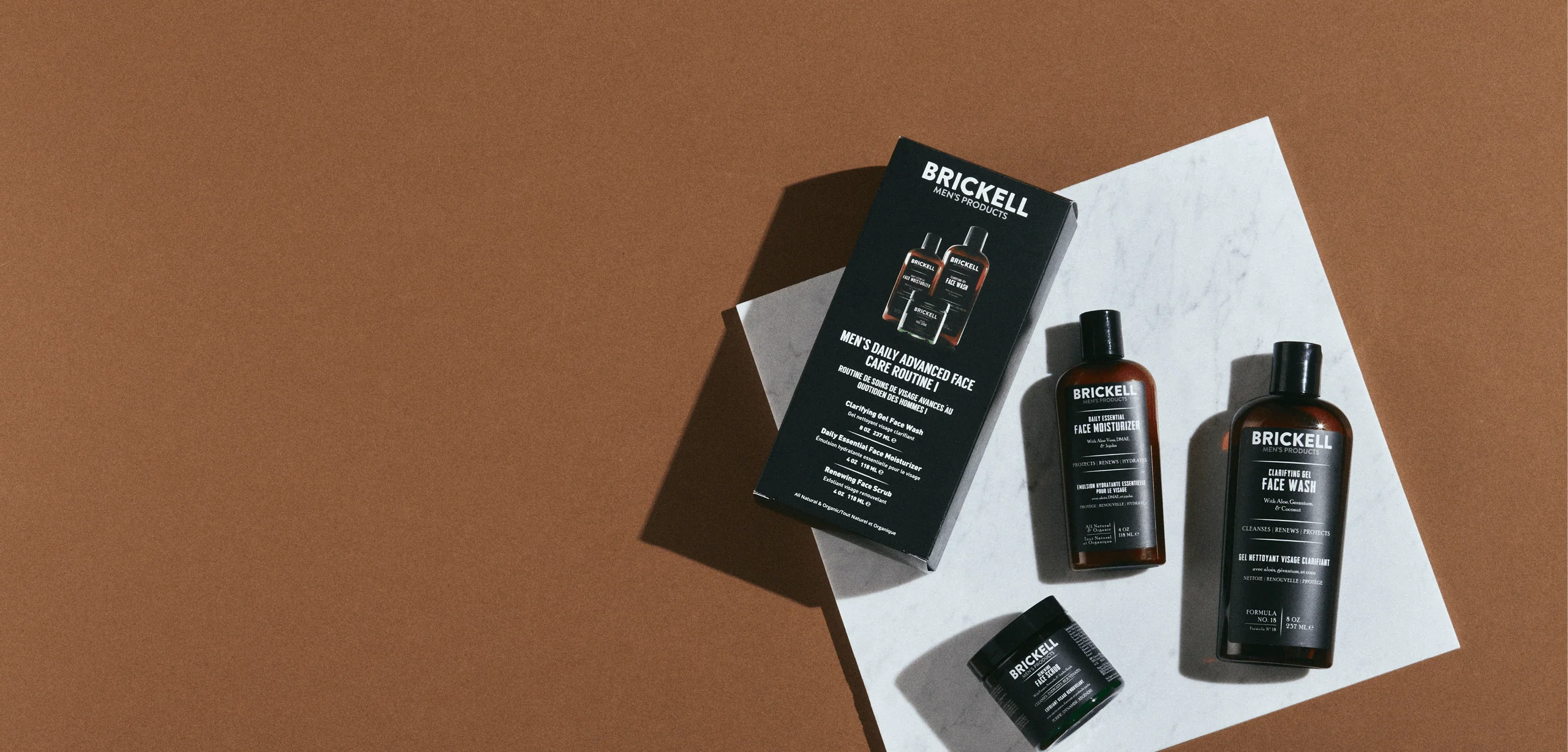The Grooming Manual
How Does Humidity Affect Your Skin?

When you check the weather forecast, chances are you don’t think too much about your skin. You want to know the temperature so you can wear appropriate clothing. You might need to bring a raincoat or umbrella if it’s supposed to rain. Not much else.
But what about the humidity and how it affects your skin?
Most people don’t think much about humidity at all - it might be a passing comment by a TV meteorologist or a block in your weather app that you scroll by without a second thought.
But the truth is that humidity levels have a significant impact on your skin. And depending on your skin type and the humidity, you may want to adjust your skincare routine to address potential concerns.
What Is Humidity?
Humidity is how much water vapor there is in the air. Very high and very low humidity both pose potential health risks, especially for young children and elderly people.
When you check the weather forecast, you most likely get the relative humidity. This is ratio of the current amount of water vapor in the air to the highest it could possibly be depending on the temperature and water conditions. So if the relative humidity is 100%, the air is fully saturated with water vapor. In those circumstances, rain is likely.
Seasonal Changes in Humidity
Summer brings warm air the is able to hold an increased amount of moisture. So spring and summer weather tends to have a higher humidity than that of the winter months.
Cold, dry air is often associated with fall and winter. That’s because the air has a lower humidity and thus the temperature feels colder than it actually is, plus the air itself has a drying effect on the environment.
How Does Humidity Affect You?
When it’s hot outside and the humidity is high, if feels extra hot and muggy. That’s because your body’s natural cooling mechanism - the evaporation of sweat - is stymied. If the air is already packed full of water vapor, your sweat evaporates less quickly and you aren’t able to cool off. Thus the wet, sticky, hot feeling of a humid summer day.
The opposite happens if the humidity is low. You will feel like the temperature is cooler than it actually is because your sweat evaporates very quickly.
Researchers have found that, on average, people are most comfortable when the relative humidity is about 45%. Of course, depending on the weather where you live, you may have to deal with very different levels of humidity - especially during specific times of the year.
Humidity Isn’t Always Bad
When humidity levels are around 50%, it’s actually quite good for your skin. Those conditions allow your skin to maintain a balance of moisture that keeps it smooth and hydrated without getting too sweaty, oily, dry, or tight.
In fact, you may find that you can take it a little easier with your skincare routine during times of the year when the humidity is average and the weather is pleasant, like mid spring and late summer. While you should still be using moisturizer daily to prevent early signs of aging and improve your skin’s natural barrier, you don’t have to be as worried about dryness or blemishes during those times of year.
High Humidity and Your Skin
When the humidity is high, expect to sweat more than normal. Excessive sweating can cause problems for your skin, especially related to acne breakouts. Why?
Sweat can clog your pores, leading to irritation and inflammation. So if you’re in a place where high humidity is common, be sure to follow a skincare regimen that keeps your pores clear and cleanses your skin of sweaty residue.
If you have normal or oily skin, we recommend our Clarifying Gel Face Wash. It’s coconut-based cleansers get rid of pore-clogging bacteria without drying out your skin.
For guys with dry or sensitive skin, you’ll get the best results from our Purifying Charcoal Face Wash. It uses gentle ingredients to ensure that your pores stay clear without triggering any irritation.
How Low Humidity Affects Your Skin
Low humidity means that the air is dry, which also means your skin is susceptible to dehydration. It can become dry, flakey, cracked, wrinkled, and itchy because the air is leeching the moisture out of it.
The best way to deal with dry skin in low humidity conditions is keeping your skin moisturized. After you wash your face or shower, apply natural face moisturizer to maximize hydration and seal in moisture. Our Daily Essential Face Moisturizer leverages several natural ingredients, including:
- Hyaluronic Acid - a molecule that can hold 1,000 times its weight in water. It attracts and holds moisture, thus preventing your skin from getting dry.
- Jojoba Oil - this natural oil mimics your skin’s sebum and forms a protective barrier on your skin that traps in moisture. That prevents dehydration even on cold, dry days.
Humidity and Your Skin Type
Your skin type has a significant impact on how the humidity affects you. Make sure that the way you treat your skin takes into account your skin type in order to achieve the best results and avoid unnecessary problems.
Oily Skin
If you have oily skin, dry air is less of a concern for you. But you need to be aware of potential issues when there’s high humidity. Since this means you’ll be sweating more, be sure to clean your face regularly (twice a day, morning and evening).
While we don’t recommend washing your face more than that (additional cleansing can cause dryness), you can using skin toner to minimize the appearance of pores and reduce oil. Our Balancing Toner achieves this with cucumber distillate, witch hazel, peppermint, and aloe vera.
Another essential skincare tool for guys with oily skin is face scrub. Exfoliation is critical to removing the oily buildup that clogs pores and leads to blemishes. High humidity means more sweat and more potential for clogged pores.
So use our Renewing Face Scrub 2-3 times a week to control oil, deep clean your pores, and brighten your complexion. Its scrubbing particles - jojoba beads and pumice - exfoliate without irritating and leave your skin looking its best.
Dry Skin
High humidity isn’t a major concern for guys with dry skin. The extra moisture in the air can actually be a good thing. Of course, make sure you’re cleaning your skin regularly and not allowing sweat, dirt, and grime to clog your pores and dull your complexion.
But low humidity conditions are rough for men with dry skin. The cold, dry air of winter saps your skin of the little moisture it had. The result is tightness, irritation, flakes - and in extreme cases cracking and bleeding.
Providing your skin with the moisture it needs and then sealing that in is critical to preventing your dry skin from suffering when the humidity is low. The best way to do that is moisturizing regularly. Here’s how to do it:
- Each morning: After washing your face, apply our Reviving Day Serum and then follow up with our Daily Essential Face Moisturizer. This restores any moisture you lost while cleansing and forms a protective cushion over your skin that seals in moisture all day long.
- After showering: Soap and hot water both have a dehydrating effect on your skin. So post-shower is a critical moment to rehydrate your skin. Use our Deep Moisture Body Lotion on any parts of your body where you experience dryness - like your hands, elbows, waist, knees, and ankles. If you skip this step, dry, scratchy skin is likely to appear.
- Each evening: To lock in moisture overnight and wake up with supple, hydrated skin, use our Repairing Night Serum and Revitalizing Anti-Aging Cream before you go to bed. This combination delivers moisture to your skin’s deepest layers, promotes collagen production for firmer skin, and maximizes hydration.
Care for Your Skin No Matter the Humidity
Part of being a confident skincare pro is understanding how changes in your environment affect your skin - and learning how to counteract any negative impact. When it comes to the humidity, it all depends on your skin type. Keep your face clean, your pores clear, and your skin hydrated to ensure you look your best regardless of what the weather is doing.

